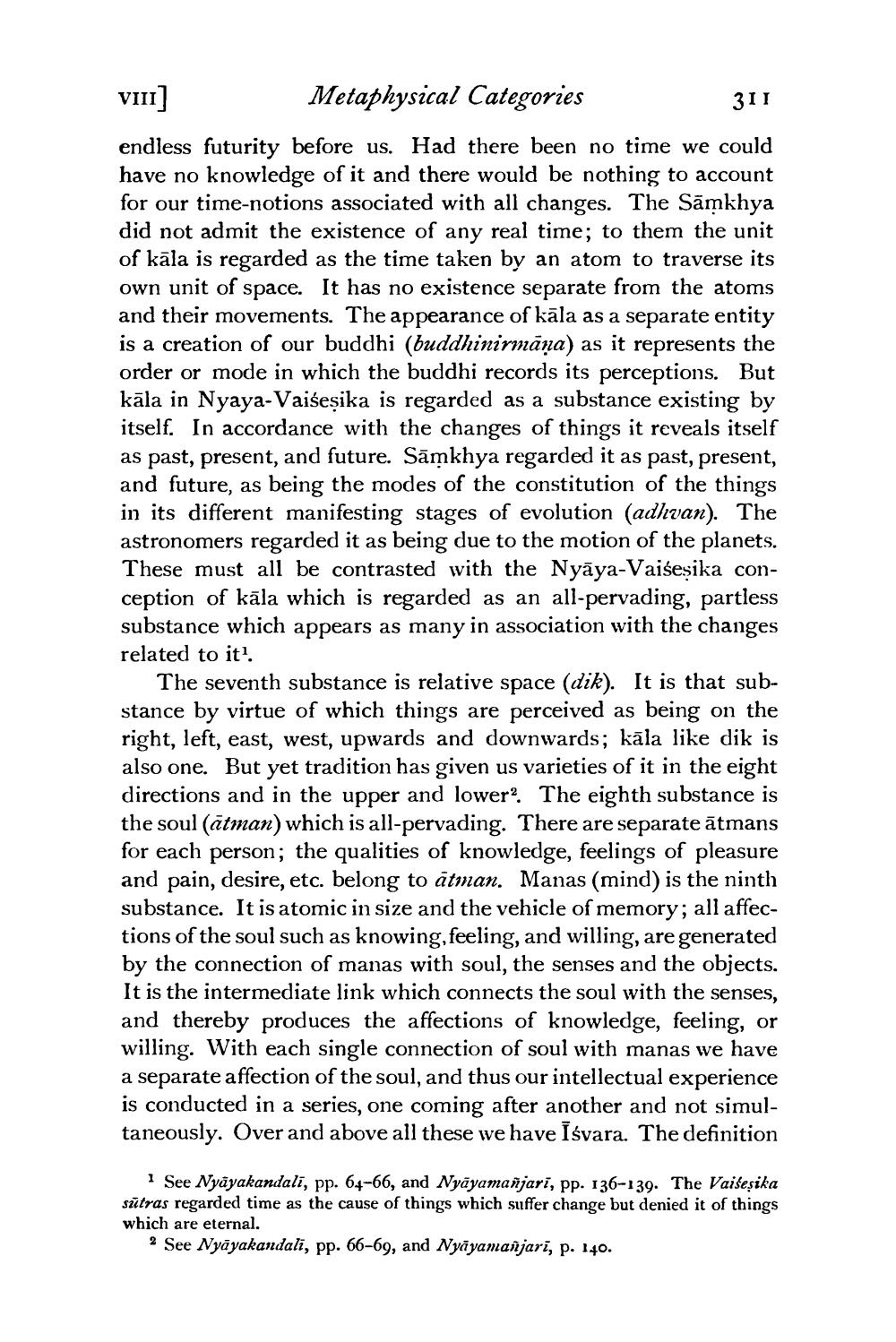________________
vi] Metaphysical Categories
311 endless futurity before us. Had there been no time we could have no knowledge of it and there would be nothing to account for our time-notions associated with all changes. The Samkhya did not admit the existence of any real time; to them the unit of kāla is regarded as the time taken by an atom to traverse its own unit of space. It has no existence separate from the atoms and their movements. The appearance of kāla as a separate entity is a creation of our buddhi (buddhinirmāņa) as it represents the order or mode in which the buddhi records its perceptions. But kāla in Nyaya-Vaišesika is regarded as a substance existing by itself. In accordance with the changes of things it reveals itself as past, present, and future. Sāmkhya regarded it as past, present, and future, as being the modes of the constitution of the things in its different manifesting stages of evolution (adhvan). The astronomers regarded it as being due to the motion of the planets. These must all be contrasted with the Nyāya-Vaiseșika conception of kāla which is regarded as an all-pervading, partless substance which appears as many in association with the changes related to it.
The seventh substance is relative space (dik). It is that substance by virtue of which things are perceived as being on the right, left, east, west, upwards and downwards; kāla like dik is also one. But yet tradition has given us varieties of it in the eight directions and in the upper and lower? The eighth substance is the soul (ātman) which is all-pervading. There are separate ātmans for each person; the qualities of knowledge, feelings of pleasure and pain, desire, etc. belong to atman. Manas (mind) is the ninth substance. It is atomic in size and the vehicle of memory; all affections of the soul such as knowing, feeling, and willing, are generated by the connection of manas with soul, the senses and the objects. It is the intermediate link which connects the soul with the senses, and thereby produces the affections of knowledge, feeling, or willing. With each single connection of soul with manas we have a separate affection of the soul, and thus our intellectual experience is conducted in a series, one coming after another and not simultaneously. Over and above all these we have īśvara. The definition
* See Nyāyakandali, pp. 64-66, and Nyāyamañjari, pp. 136-139. The Vaiseșika sütras regarded time as the cause of things which suffer change but denied it of things which are eternal.
2 See Nyāyakandali, pp. 66-69, and Nyāyamañjari, p. 140.




